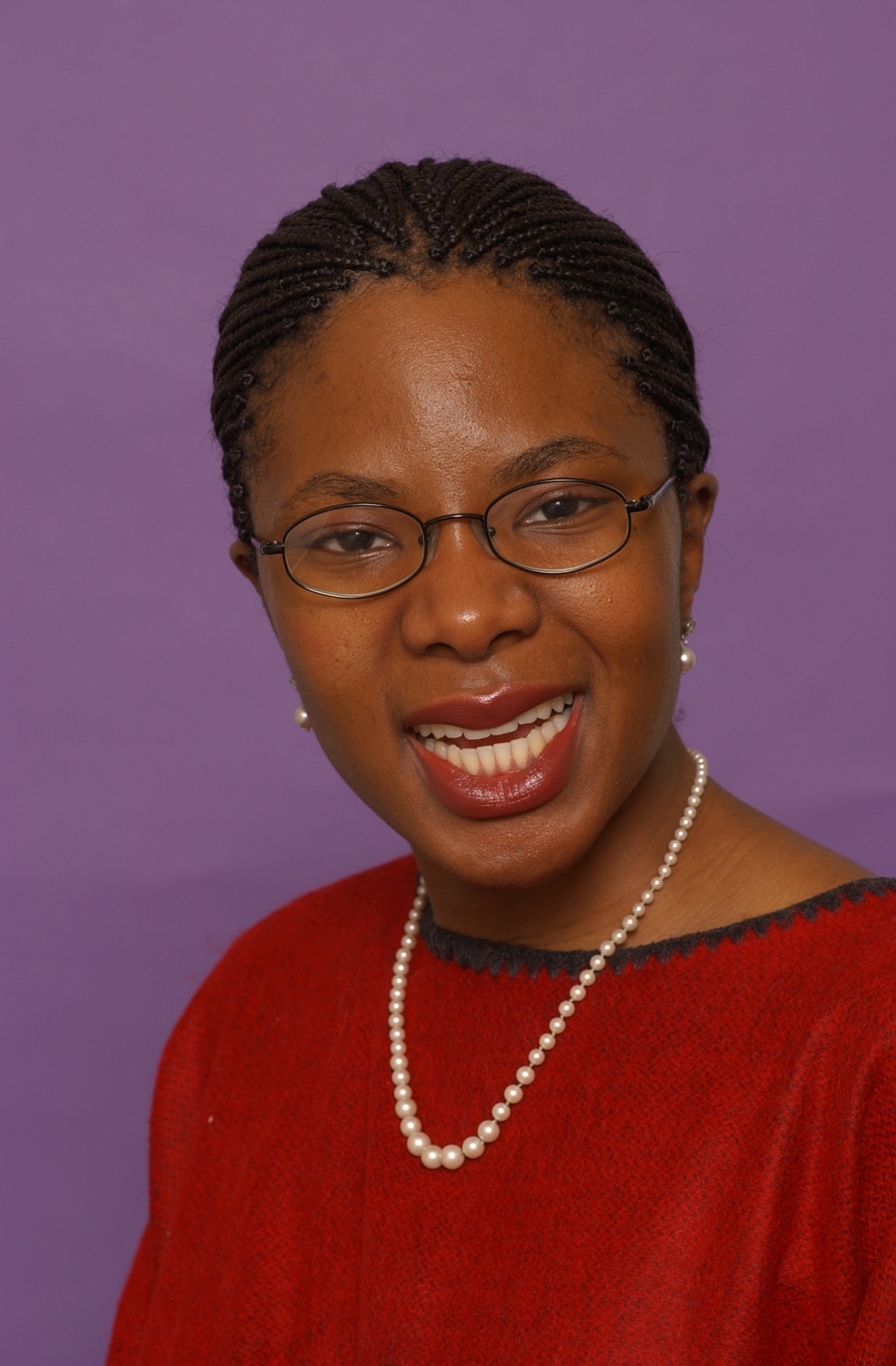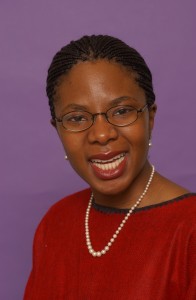Teaching Womanism is a Revolutionary Act – by Melanie L. Harris
Teaching womanism is a revolutionary act. Informed by the theological approaches, and religious questions posed by African and African American women, womanism offers teachers and students an entrée into the experiences and perspectives of we who come from, a path that “with tears has been watered” to quote James Weldon Johnson. For generations, black women scholars and activists have been asking the question, “Ain’t I A Woman?” Echoing the powerful abolitionist and women’s rights justice warrior, Sojourner Truth and remembering so many others, womanist perspectives on religion, ethics, and theology center black women’s understandings of God, humanity, and relation to the Earth based upon their own experience of surviving and thriving in spite of multiple oppressions.
Akin to feminism, womanist approaches use race, class, and gender analysis to point out inequalities in social systems that try to keep women in a subjected place. The term, womanism was coined by literary artist, Alice Walker. This is especially significant to womanist religious discourse as story, her-story and narrative are crucial aspects of unveiling the diverse religiosity in black life that is expressed by black women moving and teaching for human transformation and social justice.
Now, here’s the great thing about womanist pedagogy. Anyone can use it. Even you! Regardless of your religious background, racial or ethnic identification etc., womanist approaches to teaching engage students where they are—invites all teachers and students of life, whether in the religious studies classroom, bible study, or community space to be honest about who we are, how we relate and what we believe. More specifically womanist pedagogy does this by requiring students to name their own social locations. By naming their own racial, ethnic, socio-economic background, gendered and sexual identities as well as their earth orientation, learners can determine how those aspects of their selves influence the way they see the world, God, religion, difference, and morality.
Specific to Christian communities, womanist pedagogy places emphasis on race, class, and gender analysis to investigate how and whether theologies taught to women in the church are truly empowering for them and their communities. For example, consider one of the biblical verses held up among some Christian communities but challenged by womanist scholars “women shall be silent in the church” (1 Corinthians 14:34).
At first glance this verse might make you think that God sanctions the silencing of women. When we connect this false truth to the high rates of domestic violence and other forms of violence against women, one might question if in fact the bible should be viewed with a hermeneutic of suspicion. Asking questions about the text based on the realties of women’s lives and stories of how they survive patriarchy, face sexism, and deal with muti-layered oppressions becomes an important step in teaching and learning from womanist pedagogy. Consider using a womanist approach when teaching some of the most gender charged scriptures in the bible or in any religious text. Have a conversation about what the text leads one to believe about gender and God.
Invite the bible study, church group, or class to ask several of the following questions:
- Does God really sanction women being silent?
- What about the fact that women and men are created in God’s image, and therefore equal in God’s sight. Doesn’t that provide a basis for gender equality biblically and theologically?
- How does God see gender?
What questions come up from the group? This kind of exchange is central for constructing and using womanist pedagogy.
In addition to gender, Womanist pedagogy also engages other “categories of difference” thereby pushing our interpretations of the bible, worldviews and analysis of theological ideas and political ideologies to complexify how we think we might understand God’s commandment to “love one another.” This task becomes complex when we think about class, and how wide the margins of economic disparities are in a country where millions of children go to school hungry. When we consider parents who work 40-60 hour work weeks and still barely make enough based on the national minimum wage to support their families, we have to ask ourselves what is poverty and how does it impact quality education, and health care in our country? Regarding social systems of injustice a womanist lens forces us to take a hard look at the mass incarceration system and ask why is there such a huge gap between the percentage of white inmates and racial and ethnic minorities trapped in the system.
As a womanist pedagogue and ethicist, you might say I ask students a lot of personal questions. Beyond the traditional theological questions:
- What is the nature of God?
- What is the nature of God’s relationship with humanity?
- What is humanity’s relationship to the Earth and to each other?
I also ask students to investigate their own racial perceptions and constructions of God. What race or color is God? Does this have anything to do with how race is viewed in our society? Think about the first image of Jesus you ever encountered. Go ahead. Right now. Can you remember? Was the image of Jesus you remember first introduced in nursery school? Maybe in Sunday school class? Perhaps, if you are younger you were introduced to a multi-cultural image of Jesus at Vacation Bible School or maybe your mind holds conflicting images of Jesus in your head; the historical image of a Mediterranean, Jewish and dark skinned man and the image of Jesus, painted white, blue eyed, with brown hair. Our depictions of Jesus matter to the way we think about God, our racial constructions of each other, and the way we think about how race is connected to religion.
Other questions one might ask in this discussion include:
- What does it say about us, about our relationship with God, about our image of Christ if we imagine God’s son as a white man?
- How do we begin to translate this image of Jesus as white with the reality of white supremacy practiced in the United States through slavery, Jim Crow laws and a New Jim Crow Caste System?
- How do these questions steer us back to study the impact of colonization upon Christianities practiced around the world?
Facing Resistance
Often I see students’ jaws drop open at the audacity of such questions. Particularly, since, as a black woman, scholar and professor teaching in a predominantly white college setting I am often the only person of color in the room. In my position helping students to engage race and religion I can honestly say, race is hard to talk about. There are some good days . . . and some not so good days in the classroom. Still, this is the gift of womanist pedagogy. It invites us into the challenge of talking about race, and more. It invites us to dive into the intersections of race, class, gender and religion (as well as many other important intersections) and pushes us to be genuine, own up to our belief systems, biases and needs to transform and possibly change.
Now, if you want to use womanist pedagogy, be prepared for some resistance. In some cases I’ve had students literally get up and ask to use the bathroom to avoid the conversation. There are others who become so offended by having to name their racial constructions of God that they sit and pout until class is done. Others slice through the awkward silences, screaming “This is dumb! Everybody knows that God is White!” Upon hearing this from one of the undergraduate students in a Texas classroom I became even more convinced about the importance of the conversation. Remaining calm and rational in the midst of racist comments like this threaded together by some normative Christian claim about divinely ordered white supremacy isn’t always easy.
You try it.
Imagine yourself Black. Woman. Beautiful. Brilliant. PhD in hand, published and celebrated in your field, and now you are preparing to walk into a classroom filled with white students, many from the south, who have never been exposed or been in an environment to publicly address questions about their own race, not to mention in connection with religion. Consider how you might feel as the professor. Consider how the students might feel. Scared? Frightened? They may have no knowledge of Martin Luther King Jr. They may not know the impact of slavery on America’s economic system. Think. What resources, books, scholarship, and strengths would you need to take in the room with you to teach effectively? And what collegial community might you need in order to survive?
Now, place yourself in your own skin again. Reflections?
Womanist pedagogy is a communal style of learning that requires our mind, bodies, and souls be seen and treated with care as we work toward human and social transformation. As a womanist ethicist, I teach students how to examine their own ethical formation. I also realize the importance of having a community of colleagues outside of the classroom who can engage in thoughtful and careful critical critique about how race functions in the classroom, in the discourse and across the planet! In that sense, womanist pedagogy not only creates community in the classroom, but also demands a kind of communal exchange that can push you to recognize and validate the legacy of the womanist tradition, the gift of feminist community, and the grace of the sisterhood that gave birth to this amazing book.
Dr. Melanie L. Harris is Associate Professor of Religion and Ethics at Texas Christian University in Fort Worth, Texas where she teaches in the areas of Christian Social Ethics, Environmental and Womanist Ethics, African American Religion and Spirituality, and News Media and Religion. Author of the book Gifts of Virtue: Alice Walker and Womanist Ethics and co-editor of the volume Faith, Feminism, and Scholarship: The Next Generation. Dr. Harris has also published widely in the area of Ecowomanism, a fresh and emerging discourse in ecology and religion. In addition to a variety of scholarly articles, she is currently writing two books engaging global perspectives on Ecowomanism.



Pingback: Teaching Womanism is a Revolutionary Act – by Melanie L. Harris … | Christian Dailys
Excellent!!!
Great post! Have nice day ! 🙂 pyfpr
asdf
asdf
asdf
asdf
asdf
asdf
asdf
asdf
asdf